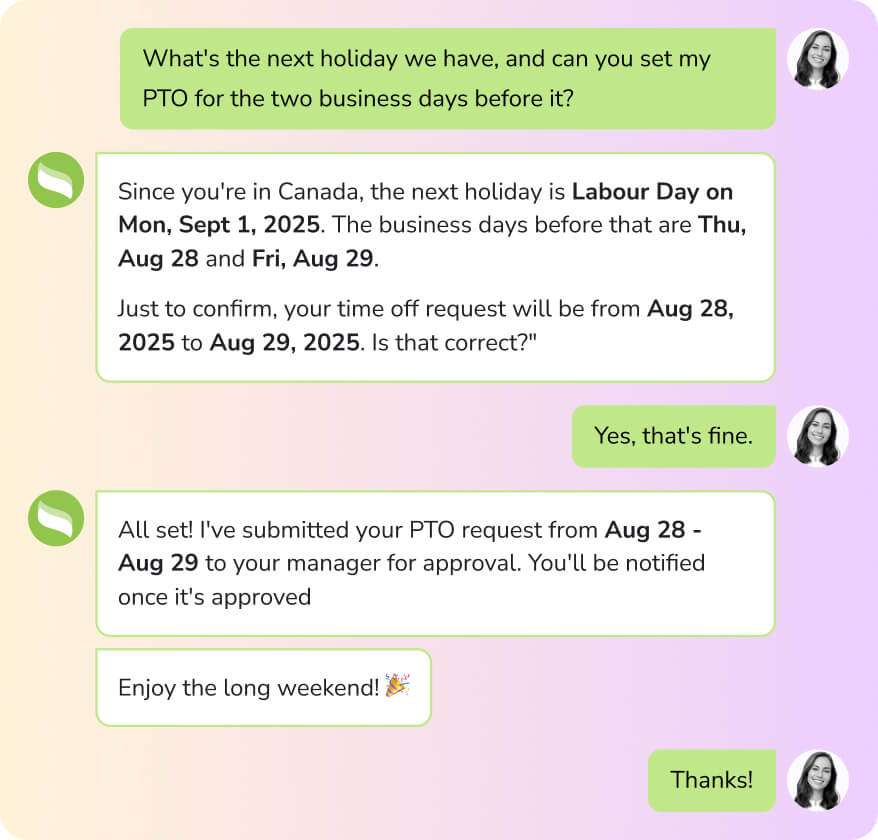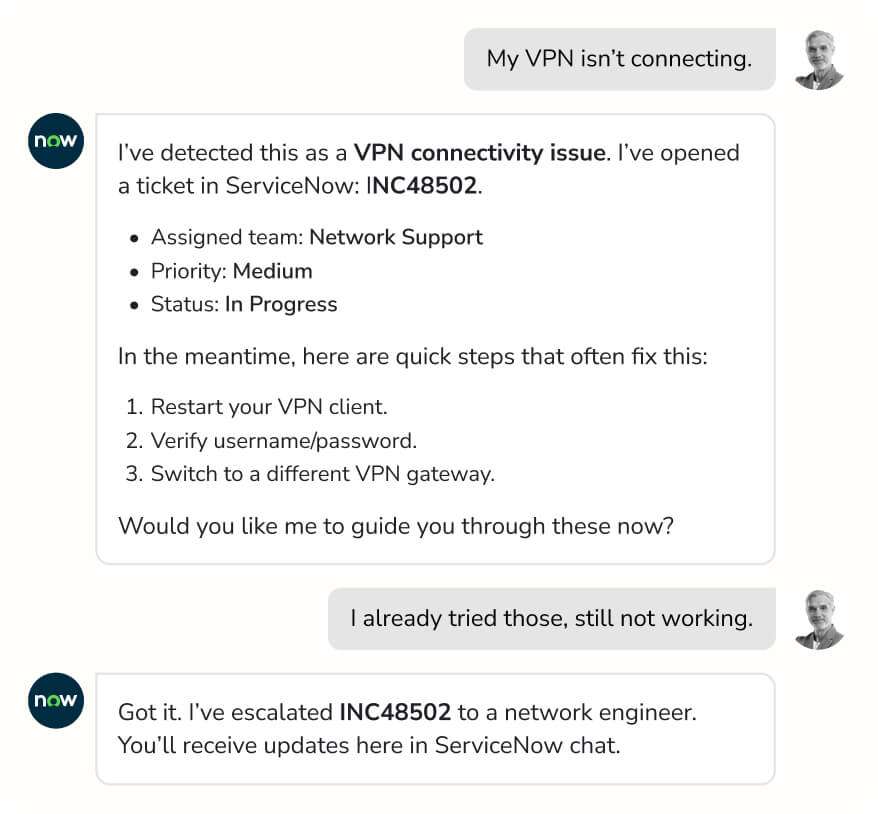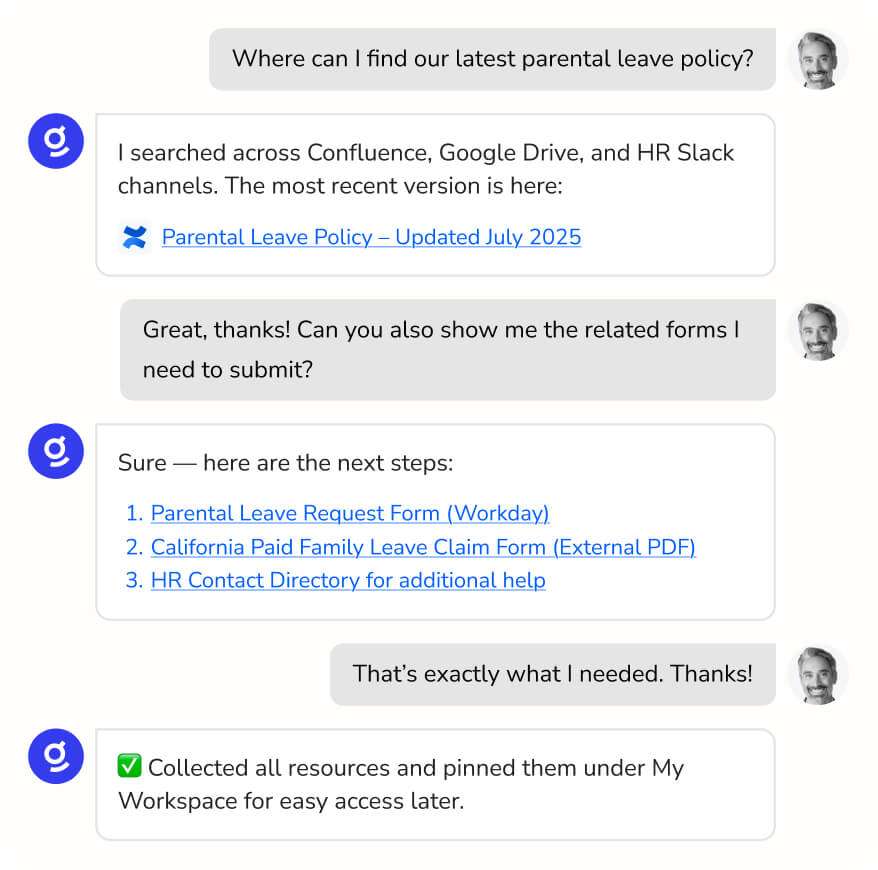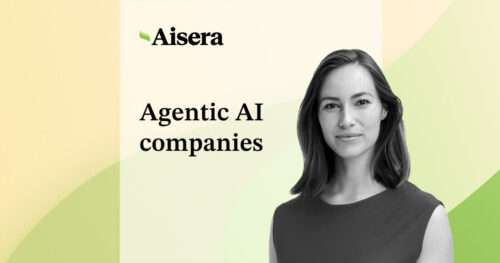Introduction to top agentic AI companies
Unlike Generative AI, which passively waits for prompts to generate text, Agentic AI systems are goal-oriented engines that reason, plan, and execute workflows. They don’t just answer questions; they use tools to complete complex jobs without constant human oversight. While 2024 was the year of chatting with AI, 2025 is the year of delegating to it.
We are witnessing a massive shift toward Agentic Process Automation (APA). Enterprises are finally moving beyond static Large Language Models (LLMs) to adopt “digital employees”, systems that can autonomously navigate CRMs, manage supply chains, and resolve IT tickets while you focus on strategy.

In this market analysis, we evaluate the top Agentic AI companies driving this shift. We assess who has the best orchestration capabilities, the most reliable decision-making autonomy, and the security architecture required to scale your digital workforce safely.
Quick Look: Top Agentic AI Vendors (2025)
| Company | Key Features | Best Use Case |
| Aisera | Multi-agent orchestration, Agent Assist, 100+ integrations | Automating IT/HR service requests and incidents at scale |
| OpenAI | Foundational LLMs (GPT-4), multimodal APIs, coding assistants | Building custom conversational agents and research copilots |
| Moveworks | Deep ServiceNow integration, real-time ticket automation | IT support automation for ServiceNow environments |
| Cursor | AI code completion, multi-agent debugging, IDE integration | Accelerating software development and code quality |
| Writer | Brand-safe generation, collaborative workflows, governance | Scaling marketing and documentation with consistent voice |
| Glean | Conversational search, unified data connectors, strict controls | Enterprise knowledge discovery and information retrieval |
Why the Market is Pivoting to Agentic AI
The jump from “Copilots” to “Agents” is driven by the need for results, not just text. Leading organizations are adopting agentic frameworks to solve fundamental operational bottlenecks:
- True Autonomy: Moving beyond “human-in-the-loop” to “human-on-the-loop,” where agents self-correct and learn from outcomes.
- Complex Problem Solving: Multi-agent systems can break down high-level goals (e.g., “Resolve this supply chain delay”) into executable sub-tasks across different software platforms.
- Reduced Latency: By removing the need for constant human prompting, agentic workflows drastically reduce the “time-to-action” for critical business processes.
Enterprises seeking greater agility and innovation are turning to agentic AI as a powerful tool to transform operations across IT, HR, Finance, and more.
Agentic AI tools: autonomous power at scale
Agentic AI is designed to completely harness the potential of multi-agent systems to automate workflows and enhance productivity.
Unlike traditional AI systems that perform isolated tasks, agentic AI orchestrates multiple autonomous agents working together to deliver end-to-end solutions, executing complex tasks that require advanced decision-making and coordination.
With these systems, companies can take on large-scale tasks in IT service management, customer support, and more, all while working efficiently and accurately.
Boost your enterprise productivity with AI agents
By leveraging agentic orchestration, AI agents dynamically allocate work among specialized agents, ensuring complex workflows are efficiently managed without human bottlenecks.
Key productivity benefits include:
- Instant responses & 24/7 availability: AI agents provide real-time support to users regardless of time zone, which reduces resolution times while improving satisfaction.
- Contextual understanding and personalization: These AI agents leverage information about the context of the conversation, past interactions, and enterprise data to tailor responses and recommendations precisely.
- Scalable automation across Departments: Agentic AI platforms can handle diverse enterprise functions—from IT and HR support to Procurement automation—within a unified framework.
- Reduction in manual workload: By automating routine and complex work, companies give their teams time to tackle higher-value projects, boosting productivity and accelerating innovation.
- Enhanced efficiency: Automating business processes and workflows with AI agents helps enhance efficiency by reducing operational costs, improving productivity, and decreasing errors across various departments.
With improvements in natural language processing, foundation models, and AI orchestration, agentic AI solutions are becoming must-haves for businesses aiming to stay ahead and flexible in 2025 and the years to come.
Top features when selecting an agentic AI vendor
Selecting the right agentic AI vendor is critical for maximizing its impact in your organization. The ideal platform combines advanced capabilities across reasoning, usability, integration, transparency, and security to support scalable, reliable enterprise-wide automation. These solutions should seamlessly integrate with enterprise applications, enabling AI and automation to optimize business workflows and improve efficiencies across multiple functions.
Reasoning and planning
Effective agentic AI tools excel at autonomous reasoning and planning, deploying multi-agent systems that mimic human cognitive workflows. Autonomous AI agents play a key role in this process, independently performing complex tasks and replicating human decision-making patterns across various systems.
These AI agents analyze complex scenarios, anticipate challenges, and make proactive decisions without human intervention. Continuous feedback and learning allow them to refine task execution and resource use iteratively. This advanced reasoning distinguishes agentic AI from typical automation, enabling intelligent orchestration of intricate business processes.
Ease of use
User-friendly design is essential for widespread adoption. The best platforms offer intuitive, low-code or no-code interfaces with drag-and-drop agent builders and clear dashboards. With these usability features, anyone—whether tech-savvy or not—can configure, monitor, and manage AI agents effectively, making deployment faster and reducing reliance on large AI expert teams.
Integration and compatibility
Agentic AI tools must seamlessly integrate with your existing ecosystem, including IT service management (ITSM), customer relationship management (CRM), enterprise resource planning (ERP), communication platforms, and existing systems.
Restful APIs, webhooks, and built-in connectors ensure smooth data exchange and workflow automation, while support for both cloud and on-premises environments provides flexible deployment and scaling in agentic AI.
Transparency and explainability
Trust in AI is built on transparency. Leading platforms track agent decisions, workflows, and interactions closely using audit trails and logs. Explainable AI features help users understand how the outcomes were reached, providing accountability.
Security and compliance
Enterprise-grade security is non-negotiable. Robust agentic AI platforms enforce data encryption at rest and in transit, role-based access controls, and comply with frameworks like GDPR, HIPAA, and SOC 2. Security-first architecture mitigates risk in managing sensitive enterprise data and workflows within AI systems.
Leading agentic AI companies empowering enterprises in 2025
The agentic AI landscape is rapidly evolving with several pioneering companies offering innovative tools that automate complex workflows and enhance enterprise productivity. By driving operational efficiency, these companies streamline business processes, reduce manual effort, and support digital transformation across organizations.
These leaders range from foundation model creators to specialized platforms focused on IT service management, development, content creation, and intelligent search. Below, we highlight six top agentic AI companies shaping the future of business automation with their unique capabilities and solutions tailored to diverse enterprise needs.
Aisera
Aisera is a recognized leader in agentic AI, providing intelligent, multi-agent orchestration that spans IT, HR, Finance, and Customer Support. The company’s “System of Agents” architecture allows specialized agents to collaborate and resolve complex enterprise requests autonomously.
Market Recognition:
- Gartner (2025): Named a Visionary in the Magic Quadrant for AI Applications in ITSM, acknowledged for its forward-thinking agentic capabilities.
- Gartner (2024): Recognized as a Leader in the Magic Quadrant for AI Applications in ITSM.
- Industry Leadership: Consistently ranked as a Leader in the Forrester Wave™ (Conversational AI for Employee Services) and IDC MarketScape, validating its long-term dominance in enterprise automation.
Key features
- Multi-agent collaboration: Multi-agent system deploys specialized AI agents that work together to resolve complex issues across various domains seamlessly.
- Agent Assist: Agent assist provides real-time AI-powered assistance to human agents, automating ticket resolution and recommendations.
- Aisera Assistant: Aisera Assistant delivers real-time AI-powered support to human agents, automating ticket resolution, offering proactive recommendations, and orchestrating AI workflows to boost productivity and accuracy.
- Domain-specific Agents: Aisera’s domain-specific agents use large language models fine-tuned on enterprise data to understand technical and contextual nuances.
- Seamless integration: Supports 100+ enterprise apps and best ITSM tools, CRM, and communication platforms for smooth, scalable deployment.
- Enterprise-grade security and compliance: Adheres to Agentic AI compliance, including GDPR, SOC 2, and other regulatory standards to safeguard data.
Best use case
Aisera excels at automating service management across IT, HR, and other employee-focused functions for global enterprises, delivering multilingual, 24/7 AI support that reduces response times, cuts operational costs, and boosts user satisfaction.

OpenAI
OpenAI is a pioneer in foundational AI models powering numerous agentic AI systems with versatile large language models such as GPT-4, enabling broad reasoning and natural language generation capabilities.
Key features
- Foundational models for agentic AI: Provide powerful, large language models that support agentic systems capable of conversation, planning, and decision-making.
- Generative AI capabilities: Leverages advanced generative AI to create autonomous agents, enhance productivity, and integrate seamlessly with enterprise workflows across industries
- Multi-modal processing: Supports text, image, and code inputs for diverse AI interactions.
- Developer-friendly API ecosystem: Enables integration of AI assistants across industries and applications using flexible APIs.
- Continuous model training: Regular updates incorporating new data improve performance and safety.
- Robust ethical safeguards: Employs multi-layered measures including strict usage policies, content moderation, human review, continuous model alignment with human feedback, and transparency practices to ensure responsible, safe, and deploy AI agents
Best use case
OpenAI’s technology powers conversational AI agents, coding assistants, and intelligent research aids, serving as a foundational platform for enterprises embedding agentic AI capabilities.

Moveworks / ServiceNow
Moveworks integrates advanced agentic AI with ServiceNow and other enterprise platforms, specializing in AI agents that automate employee support and streamline workflows across IT, HR, and beyond
Key features
- Intelligent multi-agent orchestration: Coordinates specialized AI agents for rapid, collaborative AI agents problem-solving.
- Conversational AI with natural language understanding: Enables employees to communicate IT issues via chat, voice, and email seamlessly.
- Deep ServiceNow integration: Leverages existing workflows and datasets for optimized automation.
- Automates and optimizes enterprise workflows: Streamlines complex, cross-departmental processes across IT, HR, and other departments.
- Real-time ticket processing: Automates incident classification, routing, and resolution without human intervention.
- Enterprise security and compliance: Maintains strict security standards and regulatory compliance.
Best use case
Designed for enterprises using ServiceNow, Moveworks streamlines IT support by automating ticket management, reducing downtime, and enhancing employee satisfaction.

Cursor
Cursor focuses on empowering software development teams through agentic AI tools designed to automate coding, debugging, and documentation with contextual AI assistance.
Key features
- AI-Powered code assistance: Provides smart code suggestions, auto-completion, and generation tailored to the specific development context.
- Multi-agent coordination: Utilizes multiple AI agents collaborating to tackle complex coding problems and streamline workflows.
- Integration with popular IDEs: Supports seamless embedding within widely used development environments to augment existing workflows.
- Context-aware recommendations: Analyze code context to enhance accuracy and reduce errors
- Data analysis capabilities: Assists with data analysis in code and development workflows, enabling teams to process and examine data for insights and improved decision-making.
- Security measures: Implements safeguards to prevent introducing vulnerabilities via automated code.
Best use case
Cursor is ideal for developer teams aiming to accelerate software delivery, improve code quality, and reduce bugs through AI-driven assistance incorporated directly into their development environments.

Writer
Writer is an AI-powered content platform leveraging agentic AI to assist organizations in creating, editing, and optimizing content while maintaining brand voice and consistency.
Key features
- AI agent technology: Utilizes autonomous AI agents for content creation, editing, and optimization, enabling efficient workflow automation and improved operational efficiency.
- Automated Content Creation: Generates drafts, rewrites text, and provides editorial suggestions aligned with brand guidelines using AI agents.
- Collaborative AI workflows: Facilitates content review, approval, and style consistency across teams.
- CMS integrations: Connects seamlessly with popular content management systems to streamline publishing.
- Domain-specific large language models: Apply contextual understanding for content relevance and accuracy.
- Enterprise-grade privacy and governance: Ensures data security and compliance with enterprise policies.
Best use case
Writer supports marketing, communications, and customer service teams needing scalable, consistent, and high-quality AI-powered content generation and management.

Glean
Glean provides an AI-enhanced enterprise search platform that uses agentic AI to help employees quickly find information from diverse organizational data sources through natural language queries.
Key features
- Conversational AI search: Enables users to interact with search via natural language, improving query accuracy and relevance.
- Unified data integration: Connects with multiple data repositories, including documents, emails, and collaboration tools.
- Personalized search results: Leverages user roles, preferences, and context for tailored responses.
- Multi-language support: Supports cross-lingual search to serve global teams effectively.
- Robust security and compliance: Enforces strict data access controls and adheres to enterprise security standards.
Best use case
Glean is best suited for organizations seeking to enhance productivity by reducing time spent searching for information through AI-driven, context-aware, and conversational enterprise search.

How to choose the best agentic AI tool for you
Choosing the right agentic AI tool is a strategic decision that will significantly impact your enterprise’s digital transformation journey. With numerous platforms available, each offering varied features and capabilities, a systematic approach ensures you select a solution that aligns with your business needs and maximizes return on investment.
1. Define your business objectives clearly
Begin by identifying the key problems you want agentic AI to solve within your organization. Whether it’s automating IT processes, enhancing customer support, accelerating software development, or scaling content operations, clarity on objectives helps narrow down platforms designed for your focus areas.
2. Prioritize core capabilities
Evaluate potential platforms against essential features such as:
- Autonomous multi-agent orchestration and reasoning
- Real-time agent assistance with next-best action recommendations and automated workflows
- Flexibility to customize and extend workflows
- Support for multi-language and domain-specific LLMs
- User-friendly interfaces for both technical and business users
3. Integration and scalability
Your agentic AI platform should seamlessly integrate with your existing IT service management (ITSM), customer relationship management (CRM), enterprise resource planning (ERP), and communication tools. It is crucial to integrate AI technologies so they connect and function smoothly within your existing data systems and workflows. Verify the availability of APIs, pre-built connectors, and support for hybrid deployment (cloud and on-premises). Also, ensure the solution can scale with your organization, accommodating additional languages, geographies, departments, and increasing user volumes without degradation in performance.
4. Security, compliance, and data privacy
Given the critical nature of enterprise data, confirm that the platform adheres to your industry’s regulatory requirements, such as GDPR, HIPAA, and SOC 2. Robust security practices—including end-to-end encryption, access controls, and audit trails—are non-negotiable to protect sensitive information.
5. Vendor reputation and support ecosystem
Investigate the vendor’s track record, industry expertise, and client references. Strong customer support, ongoing training, and a vibrant ecosystem of add-ons and third-party integrations contribute significantly to successful adoption and continuous improvement.
6. Cost structure and return on investment
Understand the pricing models—subscription, usage-based, or licensing—and total cost of ownership, including implementation, training, and ongoing maintenance. Balance cost considerations with expected efficiency gains, cost savings, and productivity improvements to ensure a compelling ROI.
Transform your enterprise with agentic AI
Agentic AI represents a paradigm shift in enterprise automation, offering unprecedented abilities to transform business operations by combining autonomy, intelligence, and collaboration among AI agents. As more organizations face growing complexity in their IT environments, customer interactions, and operational workflows, agentic AI emerges as a powerful solution to drive innovation, efficiency, and agility at scale.
1. Accelerating digital transformation
By automating complex, multi-step workflows that traditionally required significant human intervention, agentic AI acts as a catalyst for digital transformation. Through agentic orchestration, intelligent AI agents autonomously manage and optimize complex workflows across various enterprise functions.
This capability also supports scaling AI workflows, enabling organizations to efficiently expand automation across the enterprise. Intelligent AI agents handle everything from routine ticket resolution in IT service management to dynamic content generation and developer support. This shift accelerates the pace at which businesses modernize their processes, turning manual bottlenecks into seamless automation pipelines.
2. Boosting employee productivity and engagement
Agentic AI tools empower employees by offloading repetitive and mundane tasks, allowing staff to focus on more strategic and creative work. AI assistants augment human capabilities by providing real-time insights, recommendations, and proactive notifications tailored to specific roles and workflows.
This AI-human collaboration enhances workforce productivity, reduces burnout, and fosters innovation, creating a more engaged and satisfied team.
3. Enhancing customer and user experience
Personalization and responsiveness are critical in today’s customer-centric economy. Agentic AI platforms enable enterprises to deliver 24/7 multilingual, context-aware support that adapts to individual user preferences and histories. Whether through AI assistants, voice assistants, or integrated service desk agents, businesses respond faster and more accurately to customer needs, boosting satisfaction, retention, and brand loyalty.
4. Driving agility and competitive advantage
The dynamic nature of markets demands that enterprises be agile and adaptive. Agentic AI’s ability to learn from interactions, optimize workflows autonomously, and orchestrate AI agents working in concert equips businesses to rapidly respond to emerging challenges and opportunities. This responsiveness enhances decision-making, mitigates risks, and opens new avenues for innovation—providing a sustainable competitive edge.
4. Reducing operational costs and risks
By minimizing manual intervention, agentic AI significantly lowers operational costs across departments. Automated ticket triage, issue resolution, and content generation reduce overhead and speed up delivery timelines. These platforms enable minimal human intervention, allowing AI agents or bots to perform repetitive, structured tasks independently and further reducing manual effort.
Furthermore, stringent security protocols embedded within these platforms mitigate data privacy risks and ensure compliance with regulatory requirements, protecting enterprises from costly breaches and legal challenges.
5. Preparing for the future of work
Integrating agentic AI prepares organizations for a future where intelligent automation and human expertise coexist harmoniously. The integration of agentic AI into enterprise software allows large-scale business systems to benefit from advanced automation and intelligence. Businesses that adopt these technologies position themselves to lead in an increasingly digital and AI-driven world, unlocking new growth avenues while maintaining operational resilience.
In conclusion, agentic AI is not just a technology upgrade. It is a foundational enabler of enterprise transformation that empowers organizations to innovate, scale, and thrive in the modern era. Adopting top agentic AI tools is essential for driving automation and innovation in modern enterprises.


